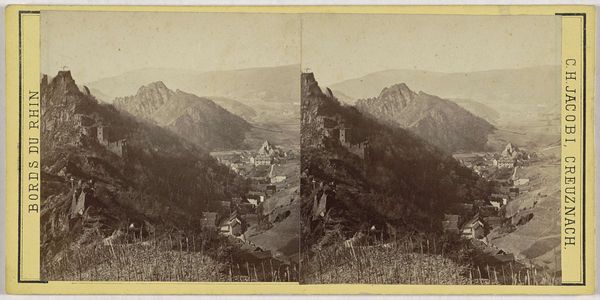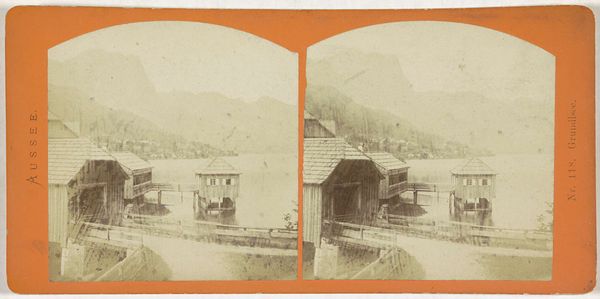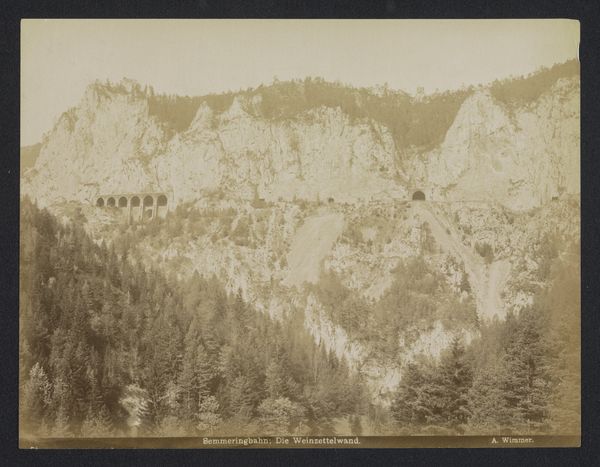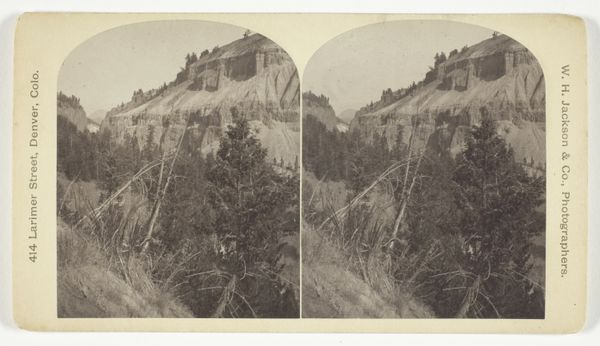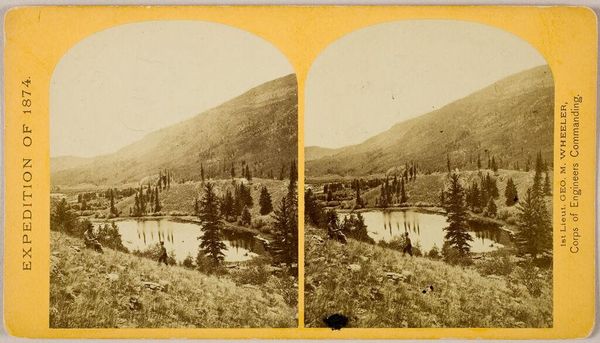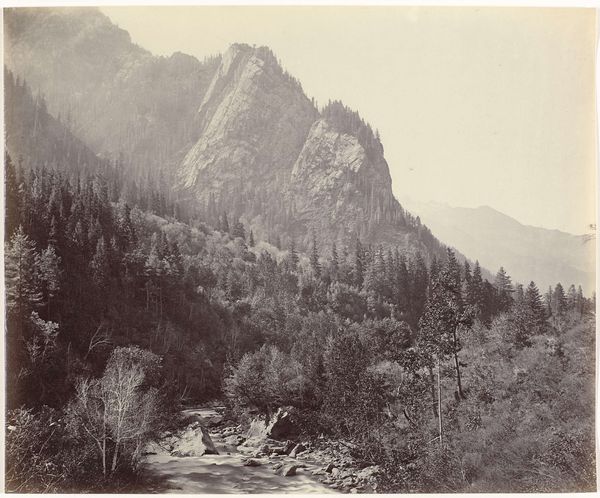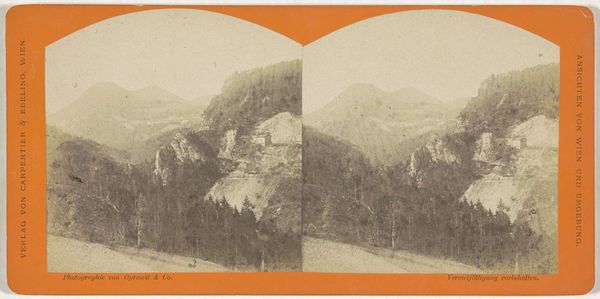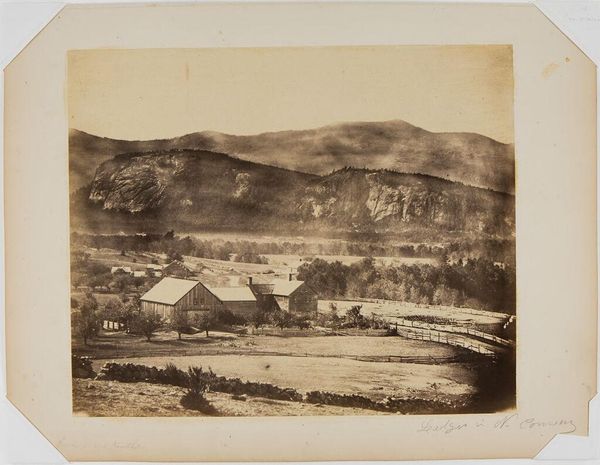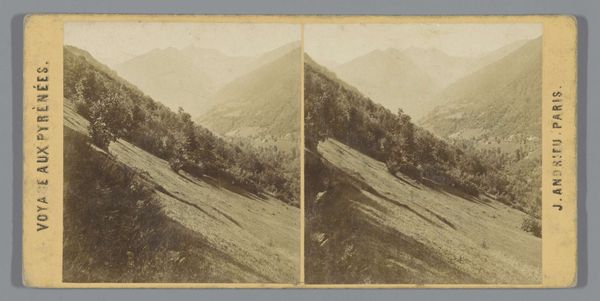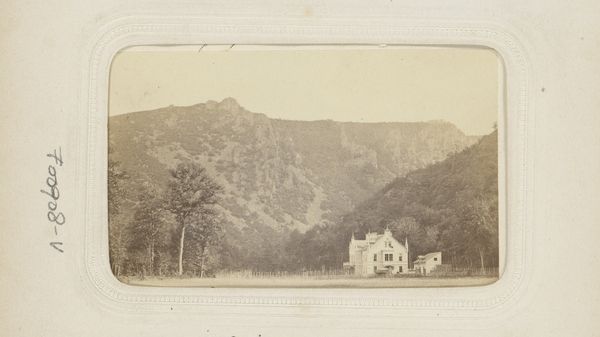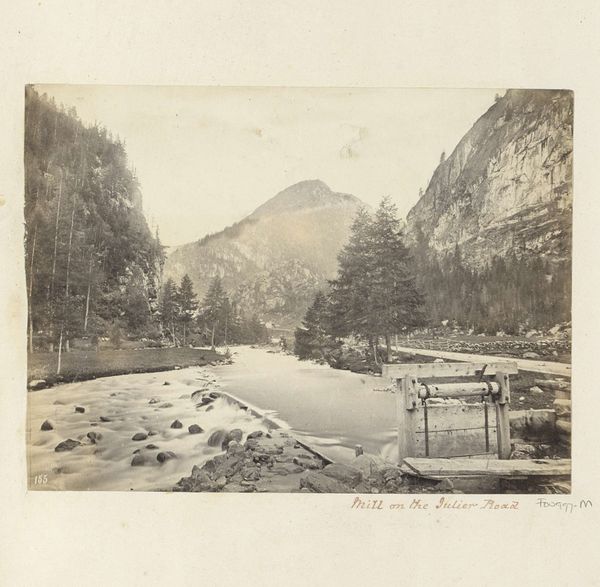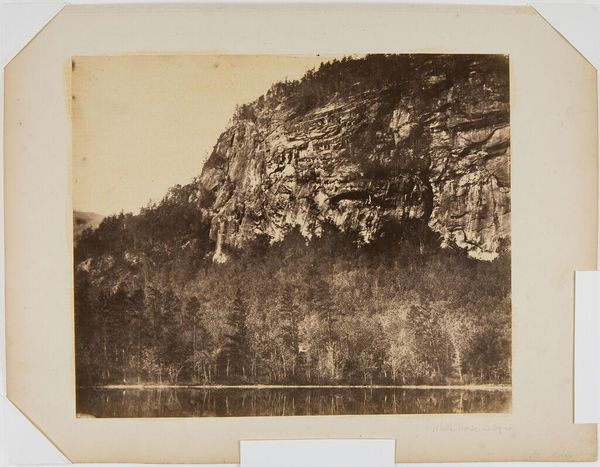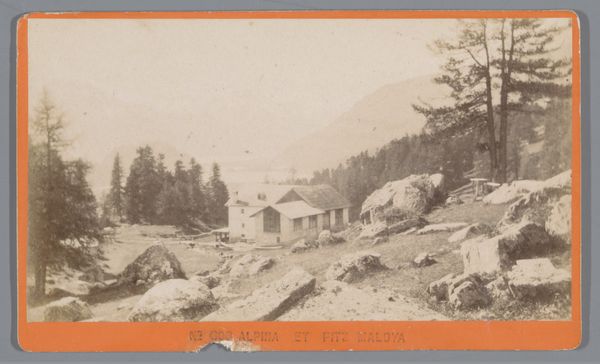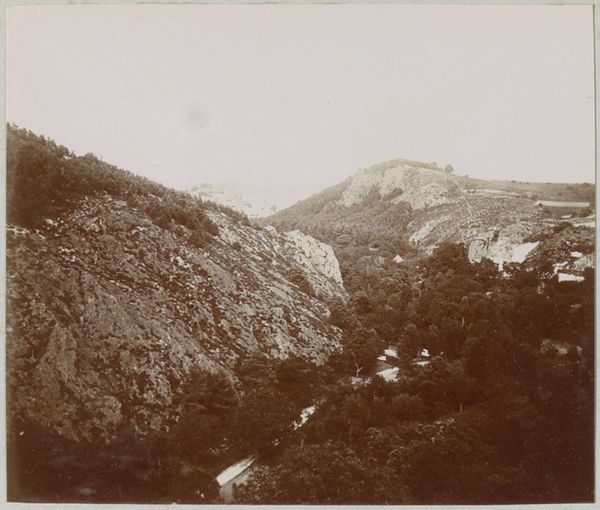
photography
#
natural tone
#
landscape
#
waterfall
#
photography
#
natural palette
#
realism
Dimensions: height 84 mm, width 169 mm
Copyright: Rijks Museum: Open Domain
Editor: This photograph, "Waterval van Romkerhalle," taken by Hermann Selle sometime between 1866 and 1870, depicts a majestic waterfall cascading down a rocky cliffside, alongside a quaint building. I'm struck by the serene, almost romantic mood it evokes. What captures your attention when you look at this piece? Curator: I see a fascinating intersection of nature, burgeoning technology, and socio-economic shifts. Photography at this time was rapidly evolving, becoming more accessible, yet still imbued with the prestige of documentation. The choice to depict this waterfall and its setting isn’t accidental. These picturesque scenes, like the Harz Mountains, became tourist destinations. Consider this photo's function: was it merely an artistic endeavor or a promotional tool, shaping perceptions of a location to stimulate tourism? Editor: That's a great point about the promotion of tourism! I hadn’t considered the photograph's potential as a marketing tool. So, you’re saying the seemingly straightforward image of nature might actually be influenced by commercial and social factors? Curator: Precisely! The presence of the building near the waterfall is also intriguing. Is it an inn, a residence, or perhaps a part of the infrastructure that facilitated access to the falls? Selle is capturing not only the beauty of nature, but also humanity’s growing relationship with it, increasingly mediated by leisure and capital. Who controlled access to this landscape, and who benefitted from its popularity? Editor: So, beneath the surface of a simple landscape, there's a story about accessibility, tourism, and even control over natural resources. Curator: Exactly! Analyzing its reception and dissemination could reveal how photography shaped public perceptions and access to nature in a rapidly industrializing society. Editor: I never thought about landscape photography in such a political and economic way. Thank you for this new perspective. Curator: It’s been my pleasure. Art, even something seemingly simple, reflects and shapes the society that produces and consumes it.
Comments
No comments
Be the first to comment and join the conversation on the ultimate creative platform.
